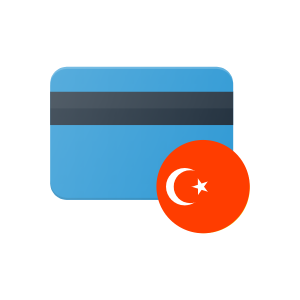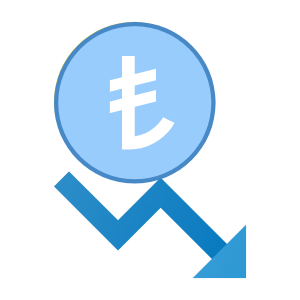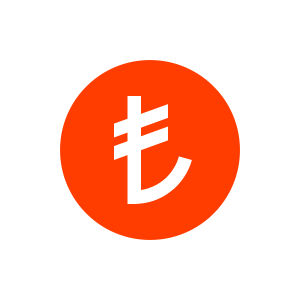Turkey is a country with a very rich and diverse culture. What’s a huge contributor to this fact is its very location, as Turkey is basically a bridge between Asia and Europe. Thanks to this, the cultural heritage of many countries have managed to “rub off” on Turkey, resulting in this very diverse country. Turkey is a very large country, ranking 36th in the world in terms of its size.
Turkey has been showing steady economic growth all the way since the 2000s, with a decently high employment rate, and high incomes for citizens. Thanks to this, Turkey is now one of the biggest economies in the region. This is quite impressive because Turkey has definitely had a lot of hardships and turbulence in its economy, but still has managed to grow. Besides the economy, Turkey is also a big political and military player as well, with a lot of say on what’s happening in the region.
Considering all of this, it shouldn’t be a surprise that the country has a decently strong Forex environment, with quite an impressive size and participation from the local community. In fact, in terms of its sheer size, the Turkish Forex market is among the biggest in the world. However, it definitely wasn’t always sunshine and rainbows for Forex traders in Turkey. In the past, it was a radically different environment, more specifically leaning towards the negative side. It took many years for Forex in Turkey to reach the point where it’s at today, so it has definitely been a journey.
In this guide, we will be making a general overview of Forex trading in Turkey, discussing how it works, what are the legal specifics surrounding it, what are the options available to you as a trader, what you need to look out for, and much more. By the end of it, you will be ready to get started with Forex trading in Turkey right away and start making your very first steps in the trading journey.
Best Forex brokers available in Turkey
If you’re looking only for the best brokers available, and don’t want to waste your time on the trial and error of trying out all sorts of different brokers, then check out our shortlist of best Forex brokers in Turkey. This list is based on a lot of research, taking into account everything from the public reviews, success rates of the brokers, availability of options, and much more. Make sure to give each one of these brokers a close look, and you will find just the right broker for you to get started today!
BROKERS GO HERE
Turkey’s Forex regulation
As we have mentioned, Turkey’s Forex market has had a very rough past, and this, in large part, was due to a lack of a decent regulatory environment. This lack of regulation has been a source of a lot of problems in Turkey, especially the problem of scams and fraud. Thousands upon thousands of people were getting scammed. Many people were getting desperate, as it even got the point where there were a lot of incidents happening, like when a gang of armed Forex traders who were scammed charged inside brokerages to demand the recovery of their funds.
Needless to say, this kind of scammer free-for-all was heavily damaging the reputation of trading in the country, so objectively speaking, getting from that point to where it is today, is definitely an achievement for the Turkish Forex market. However, as mentioned, it was definitely a long way to that point. First and foremost, a decent regulatory environment was needed, as the existing one at the time was very weak and ineffective.
Capital Markets Board
The regulatory body behind the Turkish Forex market is the Capital Markets Board (CMB) of Turkey, which was established back in 1982. If there was to be an improvement in the country’s regulatory environment, CMB was the place to start. There was definitely a lot of work to do, with a lot of improvements to be made. The main thing that CMB needed was a redefinition and expansion of its regulatory authority and scope of responsibilities. Long story short, multiple keys, important legislations were passed, and CMB is a completely different animal today.
Currently, CMB’s main objectives are to maintain the stability of the market, as well as oversee the major operations of brokers and other financial market participants, with the final goal of protecting the traders. How exactly does CMB do this, and what are the specific examples of its implementations?
Licensing process
Perhaps the most significant of the changes that CMB introduced was the need for a license, and how that license is to be obtained. Any broker that wishes to conduct business in Turkey is required to obtain the said license. The licensing process itself is quite demanding, and it’s not all that easy for the brokers to obtain it.
It’s worth noting, that since Turkey is not a part of the Eurozone, brokers that are licensed by other popular Forex regulators such as Cysec from Cyprus, would not be legally allowed to operate in Turkey. Although this results in a lot of brokers being unable to do business, it’s something that was necessary to increase the safety and stability of the market. It’s what the market needed at the time, and it for sure has worked for the better, as the situation with the scams and fraud has improved dramatically.
Very strict and firm restrictions
The years of scam and fraud free-for-all has resulted n a very strict and severe response from CMB. We have seen multiple manifestations of this, in form of various restrictions that CMB has introduced. Some of them were very strict and severe, perhaps a bit over the top as well. The new restrictions in particular, which came in place back in 2017, were so bad, that many brokers considered considering down altogether, many of whom actually did it.
These new laws and restrictions were introduced with an aim to protect small, non-professional traders that were especially under the risk of financial damage due to their inexperience and lack of large capital. The rules mandated, that for anyone to be allowed to trade, they had to make a minimum deposit of ₺50,000, which would be around $8,400 as of this writing. Needless to say, this is a gigantic minimum requirement that we do not see with almost any other Forex market. A logical question that you may have, however, is how exactly is this a help for the small-time traders? Well, the rationale behind this initiative is that if an individual can not afford to make the minimum deposit of ₺50,000, then, for their own safety and security, they should not be allowed to trade in the first place.
Expectedly, there are restrictions on leverage and CFDs as well. As an example, the traders who are trading on margin are allowed to use the maximum leverage of only 10:1, which is among the lowest in the world. Understandably, these very restrictions were a cause of frustration for many people. CFDs and higher leverage caps, although they are a cause of a lot of money loss for many people, are also a source of a lot of profits for many people who actually know how to utilize them as tools. Whether you agree with this notion or not, the idea is that they’re there for your own security and protection, which shows how seriously the government is taking the issue.
Turkey’s investor protection fund
As a Forex country that has been plagued with the issues of fraud and scams, where a lot of people lost their hard-earned money, the government of Turkey took this issue very seriously and established additional measures of protection for their traders. Investor protection funds are a very common practice for many Forex markets in the world and are one of the things that can serve as an ultimate safety guarantee.
By going with the brokers that are officially licensed and monitored by the government, you gain access to the additional layer of security in form of this fund, wherein if your broker goes bankrupt, or declares insolvency in any other form, your funds will be safe, and you will be compensated. It’s implementations like these have shown us just how much of a hard work CMB has put into making this all work, which is definitely to be appreciated.
Specifics of Forex trading in Turkey
As we have learned, the regulatory environment in Turkey has really done a 180-degree turn, going from one of the worst ones to one of the best ones. It took a lot of time and hard work, but it was, for sure, well worth it. Now, to get to the “good stuff”, what are the actual trading opportunities available in Turkey? What should you actually trade on, and how, if you are looking for the maximum results? How can you stay safe, and what should you try to avoid? Let’s take a quick look.

The national currency, and currency trading in Turkey
The national currency of Turkey is the Turkish Lira, with the Forex code of TRY. Lira has been the official currency of the country for many years now, and it has definitely gone through a lot. The currency has been subjected to a lot of devaluation and inflation, and as such, has never gotten a chance to go beyond the status of a regional currency that is largely used only within the country. This currency is under the governance of the Central Bank of the Republic of Turkey (CBRT), which has, for many years, been hard at work, trying to balance the outrageous inflation and devaluation rates of the Lira by making constant forecasts and introducing newer monetary policies. Sadly, despite its attempts, it has not been doing that effective of a job, as the Lira is quite a devalued currency.
There are many different factors that affect the value of the Turkish Lira. As a country that is a close trading partner with Europe, the slowing down of the European economic growth is one of the major factors. Naturally, the country’s political state and the environment is also a major factor, which we have seen first-hand, being the major reason for Lira’s current state. As an example, the recent increase of the refugees from Syria has had a definite and pronounced effect on the value of Lira. It’s events and factors such as these that are the main factors on the Lira. Naturally, it goes without saying that the demand for the goods that happen to be Turkey’s major exports, also happen to be major players determining the state of the Turkish Lira. We’ll talk more about that below.
All this being said, it should be noted, that the Lira definitely isn’t among the top traded Forex currencies. This is not to say that there isn’t money to be earned in ding so, however. If you are a Turkish citizen with a good understanding of how your country’s economy works and how its currency is influenced, then, by all means, go for it! The main currency pairs for Lira are the USD and the EUR.
Best Forex commodities in Turkey
Let’s take a quick overview of what kind of commodity trading specifics you can expect in Turkey. In terms of actual numbers, Turkey has a moderately decent commodity picture. In the year of 2019, it has exported over $171.1 billion’s worth of goods around the world, a very large part of which was commodities like oil ($33.9 billion), precious metals ($6 billion), and electrical machinery and equipment ($6.3 billion). Given the whole picture of Turkey’s economy, these numbers are fairly good and offer some decent opportunities for the traders.
As you may have noticed, oil is at the top of Turkey’s export list, and as such, it’s easy to understand why oil is considered to be one of the top commodities that are a factor in Turkey’s economy. In general, Turkey is also a very industrialized nation, being heavily involved in the production of ships, transportation equipment, motor vehicles and more. Additionally, its agricultural sector is very strong, making it one of the leading nations there. Products like hazelnuts, figs, pomegranates, and apricots are very strong pieces of the country’s economy and GDP. Beyond that, the fishing industry and livestock products are also worth a note. As you can see, although Turkey doesn’t particularly excel in any specific sector besides Agriculture, it still offers a decently diverse selection of avenues that you can explore as a trader. In many cases, this is exactly what is needed for successful, profitable, and fruitful trading.
Pros and cons of the Turkish Forex market 
As a quick note, here’s what we believe to be the stronger and weaker sides of the Turkish Forex market.
Pros
- Thanks to the extremely strict regulations, it’s one of the safest Forex environments
- Diversity of the market
Cons
- The high minimum deposit amount
- Not a lot of local brokers available
Turkey Forex trading brokers – the verdict
As we have learned, the Turkish Forex market has definitely not had a perfect past. It’s not a perfect market now either, but it’s doubtless, that it has demonstrated a huge amount of growth, and a lot of steps in a positive direction. Over the years, it has gone from one of the most fraud and scam-ridden markets to one of the safest ones. Although this came at a cost of much strictness, it has been well worth it.
As of today, as a trader in Turkey, what you can expect is a market that is governed by authorities that will go to every extent imaginable to ensure the safety and integrity of the market. As such, the brokers that you can do business within Turkey are of the highest possible quality, in terms of their trustworthiness and integrity. If you are from Turkey and were interested in getting started with Forex, but were on the fence due to the horror stories you have heard from the past, then put your fears aside, because today, the situation is much different, and Turkey is on a whole new level!

